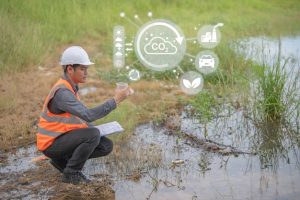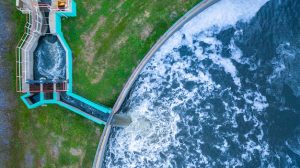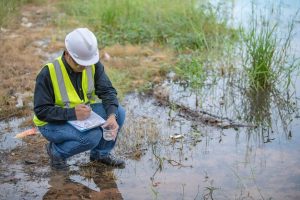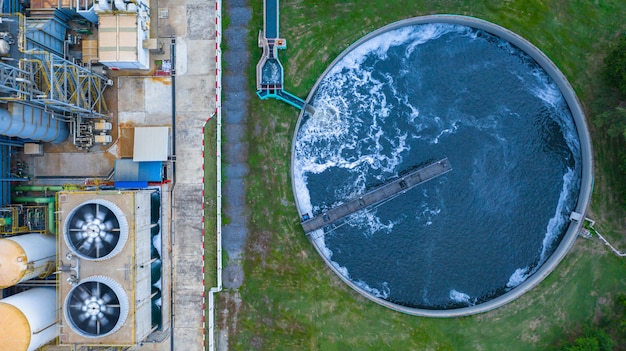Introduction Managing and preserving its water resources is becoming more challenging for the world. Considering the expanding number of people, climate change, and pollution, it is crucial to discover creative answers for securing sustainable practices in water management. In recent years, artificial intelligence (AI) and advanced language models like ChatGPT have emerged as powerful tools
Introduction
Managing and preserving its water resources is becoming more challenging for the world. Considering the expanding number of people, climate change, and pollution, it is crucial to discover creative answers for securing sustainable practices in water management. In recent years, artificial intelligence (AI) and advanced language models like ChatGPT have emerged as powerful tools that can revolutionize water resource management. Transformation of scientific research and policy-making is also possible with them.
Enhancing Water Quality Assessment and Treatment using Advanced Deep Learning Techniques
Water quality assessment and innovative treatment solutions are crucial components of water resource management. Deep learning algorithms, a subset of AI, These capabilities are truly outstanding as they can create models that accurately capture intricate relationships between numerous variables.. These algorithms can detect patterns and predict contaminant behavior in water bodies with unprecedented accuracy. By leveraging deep learning, There is room for improvement in water treatment strategies, culminating in revolutionary discoveries within the sector.
Bridging the Gap: ChatGPT’s Role in Communicating Complex Scientific Findings
Fully understanding scientific research can be challenging for policymakers and the general public, mainly because of its use of complex jargon and technical language. ChatGPT, being an innovative language model, can effectively contribute to closing this communication gap., can play a vital role by facilitating smoother interactions among people. It can translate technical scientific findings into understandable language, This facilitates policymakers’ understanding of the implications of research studies. The utilization of this translation can result in decisions that are better informed along with the enforcement of policies that rely on empirical evidence

Image by: https://truegazette.com/
Using AI to achieve Sustainable Water Supply and Management of Integrated Water Resources
Sustainable water supply and integrated water resource management Meeting the demands of communities and industries requires prioritizing sustainable methods for providing adequate water supply. When AI is combined with the capabilities of ChatGPT, can forecast supply and demand trends, identify vulnerabilities, and suggest adaptive strategies. Through the creation of interactive, scenario-driven training, By equipping stakeholders with the information required to implement sustainable water practices, ChatGPT empowers them. This proactive approach helps build more resilient water systems.
Gaining Insight into the Effects of Climate Change through AI and ChatGPT’s Involvement
Climate change has significant implications In relation to the endurance of water resources. Together, AI and ChatGPT, has the ability to examine extensive data sets for studying the various repercussions of climate change on water resources Mitigation strategies and proactive measures can be informed by these insights to tackle the difficulties presented by a shifting climate. Additionally, ChatGPT excels at articulating sophisticated climate-water interdependencies, promoting heightened comprehension and proactive measures against worldwide challenges.

Image by: https://truegazette.com/
Assisting in Risk Assessment and Regulatory Frameworks
Effective risk analysis mechanisms and governing systems are essential for protecting water resources and public health. Potential hazards can be swiftly identified by AI algorithms, quantify their impacts, along with providing recommendations for reducing risks. ChatGPT, equipped with this data, can supply detailed accounts of these frameworks in user-friendly language. Through the accessibility of intricate scientific knowledge, ChatGPT assists policymakers and the general public in making informed choices.
Uncovering the Capabilities of ChatGPT for Water Resource Management Applications
The utilization of ChatGPT shows great promise and extensive possibilities in the field of water resource management. The potential to handle and examine extensive datasets can revolutionize how we approach water-related challenges. Through comprehension of ChatGPT’s potential, researchers and policymakers can leverage its capabilities for creating improved approaches to water preservation, purification, and policy development.
Key Prompts: ChatGPT’s Role in Transforming Advancing Water Studies and Policy Development
To dive deeper into the impact of ChatGPT in water resource management, we present 10 key prompts to ask the AI language model. The topics covered by these prompts span a wide range, from predictive behavior of contaminants regarding community involvement in sustainable water management practices ChatGPT’s responses to these prompts can Cast a revealing light on its potential role in shaping water research and informing policy-making. to water research and policy-making.

Image by: https://truegazette.com/
Cultivating the Revolutionary Potential of AI in Water Research and Policy
Utilizing the integration of AI technologies, particularly leveraging deep learning and advanced language models like ChatGPT, presents a transformative opportunity for water research and policy. By enhancing scientific comprehension and democratizing knowledge, These technological advancements foster the ability for individuals to make educated choices at multiple levels, spanning from grassroots communities to worldwide platforms. Unlocking the potential of AI in managing our water resources holds promise for creating a resilient and ecologically balanced future.
Conclusion: Embracing a Sustainable and Resilient Water Future
Addressing water resource management is a critical worldwide issue, Moreover, creative ideas are vital for ensuring a sustainable and adaptable future regarding water. The rise of AI and ChatGPT offers unprecedented opportunities for a thorough approach towards addressing these challenges. By tapping into the strength of deep learning and language models, we can enhance our comprehension of water quality, involve communities, and develop policies based on evidence. Conserving and protecting water resources will be possible by embracing these technologies, ensuring a future where it is available to all.

















Leave a Comment
Your email address will not be published. Required fields are marked with *